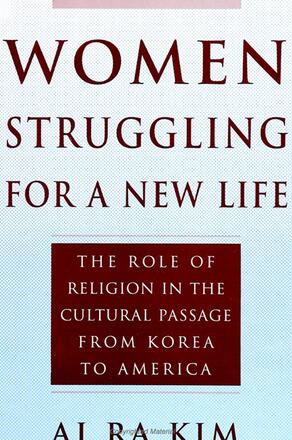
Women Struggling For a New Life
The Role of Religion in the Cultural Passage From Korea to America
Alternative formats available from:
Description
Kim explores the religious impact, particularly that of the Korean Methodist Church, on the lives of Korean immigrant ilse (first generation) in the United States. To most of these women, America is new soil, and they need to adjust to a different cultural and social environment. Consequently, they may be confused and frustrated. As a community center, the Korean church plays a significant role in their lives. Kim examines the church, to determine if it is helpful or detrimental to these women as they adjust to their lives in the United States.
Although the history of Korean immigrants in the United States is almost 100 years old, resources about Korean immigrants, particularly women, are scarce. These women have long been invisible and unheard in American society as well as in the Korean community and church. Their experiences as minority women and their painful struggle for survival in patriarchal Korean churches reflect not only the plight of women but also genuine human struggle.
Ai Ra Kim immigrated to the U. S. from Korea in 1962. She is pastor of Flanders United Methodist Church in New Jersey, former president of the United Methodist Asian American Clergywomen's Association, and adjunct professor at New York Theological Seminary.
Reviews
"What I like about this book is that it takes history seriously and makes an argument for how the socialization/enculturation of Korean women is influenced by the period of the Yi Dynasty. Kim weaves theory and empirical data together in a way that I found quite helpful. Moreover, she deals with class issues that are often overlooked in works such as these. The book is so well organized that I could hardly put it down once I started to read. Her conclusions include a feminist critique and an evaluation of the pathology that ilse women carry as a result of both the history of the Yi Dynasty and the present-day Korean immigrant church in America. This critique is especially valuable because an indigenous sociologist is making it. "—Linda E. Thomas, Iliff School of Theology